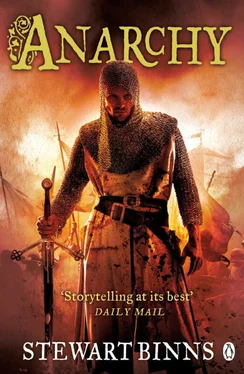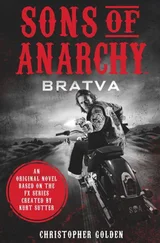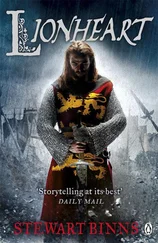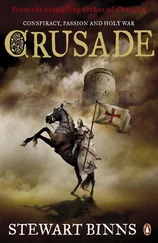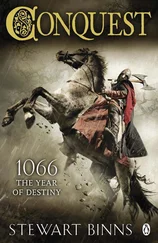At sea, there were storms and squalls to endure and periods of calm when the oarsmen earned their meagre keep. Most of these men were slaves, bonded to Venice for life. Some more fortunate ones could serve ten years on the galleys to win their freedom; a few were thieves and men of violence being punished for their crimes.
The only real threat to our heavily armed galleys were the equally powerful pirate ships. We had seen them in the distance several times off the coast of Dalmatia, stalking our progress, but had suffered no attacks. That all changed in the late summer of 1117.
We were making good progress, homeward bound for Venice, with a strong south-westerly wind in our sails pushing us up the Dalmatian coast, close to the island of Vis. We were especially vigilant: these were the most treacherous waters in the Adriatic, where numerous small and craggy islands offered perfect hidden moorings for pirates. The Domenico was one of Venice’s new and much larger galleys, with powerful oarsmen capable of outrunning most vessels and sufficient marines on board to repel boarders. But we were heavily laden with Sicilian wine and spices from North Africa, and we sat low in the water.
It was late in the afternoon and we could see from the black sky to the east that Vis was experiencing the kind of heavy storm typical of that time of day in the hot summer. Captain Selvo stood aft watching the eastern horizon; he looked calm enough, occasionally ordering small trims to the sails and checking that the oarsmen were ready to row if needed. He then issued the orders that I knew meant we were going to the first level of preparedness for battle.
‘Get the marines on deck and issue water to the oarsmen.’
He spoke quietly. The Domenico became silent, and men began to peer to the east. But the attack did not come from the east.
The Captain had stationed a lookout at the stern, facing south, and he was the first to see the three muddy-brown sails to the south-west.
‘Pirates off the port stern!’
They had obviously tacked round behind us in the night and were now bearing down on us at a rate of knots. They knew that the setting sun would freshen the wind and give them the advantage of speed to our stern.
The Captain ordered the oarsmen to row, and the war drum began to beat its steady rhythm.
The pirate ships were sleeker than our galley and stripped bare to accommodate Venetian booty. Their holds would be empty of cargo and lighter to row. Their oarsmen were free men, happy to row and fight in return for a share of the spoils. Commanded by buccaneer captains who owned their vessels, and sponsored by rich merchants who traded in contraband, every one of their ship’s company would share in the booty. Such men were hard to beat in a fight.
Their strategies were subtle, based on excellent seamanship, but their tactics were brutal, based on the ferocity of greed. If they managed to ensnare their prey, they would fill their hold to the brim and discard what they could not carry. They would kill all survivors on board their stricken victim, then hole its hull, consigning it to the murky depths, and sail for home laden with their ill-gotten gains.
The pulse of the war drum began to increase as Captain Selvo realized that the pirate sails were looming larger and larger on the horizon.
‘Increase to pursuit speed, but hold there. This could be a long haul.’
He began to look at the sun dropping towards the horizon and then back at the encroaching sails. He did this several times, calculating whether darkness might come to our aid.
‘Trim the sails. We need every cubit out of them.’ He then turned to his helmsman. ‘Hold her hard.’
Again, he spoke calmly; the crew followed suit. These were hardy seafarers. There was no need to panic – at least, not yet. We sailed like this for over an hour. Every five minutes, the oarsmen would rest to get their breath. The Captain looked at the sun again to repeat his mental arithmetic, relating the speed of the setting sun against the pace of our pursuers. Satisfied that he knew the grim answer to the equation, he ordered barrels of pitch to be brought on deck and torches lit. That meant only one thing: there would be a fight and fire-arrows would be critical to its outcome.
The pirates arrived within range with the sun low in the sky behind them. The wind was by then gusting and tossing plumes of foam from the tops of the waves. Two of the bandit ships began to move to either side of the Domenico , while one continued to close directly to our stern. The Captain ordered his corps of marines to divide into three to cover the port, starboard and stern. I was assigned to the port side and I summoned Eadmer and the men close to me.
Our bows were at a disadvantage. We were upwind of our hunters; the pirates had made a clever approach. The order came to light our first volley of arrows. We plunged their hemp-covered tips into the barrels of burning pitch and took aim.
As we loosed our volleys, we could see the pirates in their rigging ready to douse any flames with pails of water. Several of our arrows hit their targets, but shooting was extremely difficult into the strong wind and many of our missiles fizzled harmlessly into the sea. Not so the pirates’ arrows. Aided by a following wind, their volleys came straight and true. Soon our mainsail was ablaze and losing shape, without which we were easy prey.
The long slim arrows from the pirates’ Kipchak bows soon began to ricochet into our deck like hailstones. Men fell all around us and I ordered my men to cover themselves with their shields. I could see grappling hooks and ropes being prepared for boarding less than a hundred yards away. The Captain had disappeared from deck – not to desert us, but to prepare a desperate counter-attack.
The pirate oarsmen stopped rowing to arm themselves, ready to board us. Below deck, Captain Selvo used the hiatus to prepare our oarsmen for a fast and furious onslaught. With a huge cascade of water, our oars were plunged deep into the sea and, with a mighty pull, the ship lurched forward. He then shouted his orders.
‘Hard a-port, ramming speed!’
The Domenico swung to the left and the war drum’s cadence increased, making the oarsmen strike faster than I had ever seen them row before.
Half our company of marines were dead or dying on the deck – including my superiors, Pietro and Vitale – and our ship was alight fore and aft. All three sails were in shreds. We were doomed, but Enrico Selvo was determined to take at least one of the pirate vessels to the bottom with us. We were going to hit the scavenger vessel amidships, and I looked around to see how we might survive the impact.
The captain bellowed at his men.
‘Pull for your lives! Pull! ’
The impact was like nothing I had ever felt before. The buccaneers’ man-o’-war heaved backwards, forcing a huge swell of water with it, as our bull-nose prow smashed through the side of its hull. We rose in the air, like a dolphin leaping over a wave. There was a cacophony of sounds: the splintering and creaking of oak planks and heavy beams; the shrieks and cries of stricken men; and the roars and growls of a boiling sea.
Most of the men on the pirate ship were already floundering in the water. Their ship, breached almost in half with its belly and keel exposed to us, was taking on water rapidly and sinking fast. I mustered our remaining marines and we formed up behind the helm, gathering together whatever quivers of arrows we could find. We managed to get away several volleys before the two remaining pirate ships were upon us.
As the grappling hooks clattered into the deck and started pulling us towards the pirates, I noticed that the Domenico had been holed in the impact and had already started to list. Eadmer was standing next to me. I felt a rising panic as I began to look around frantically for a means of escape. Thankfully, Eadmer grabbed me by the shoulders and turned me towards him.
Читать дальше
